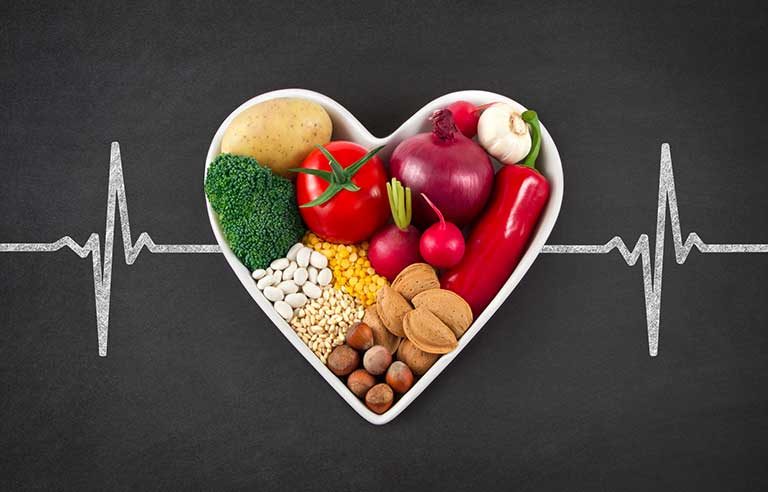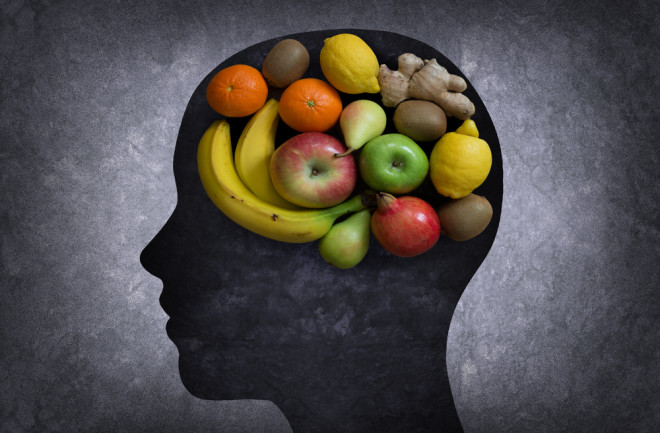
In today's fast-paced world, maintaining a healthy diet can be a challenge. However, by understanding the fundamental aspects of healthy eating, we can make informed choices that fuel our bodies and promote overall wellbeing.
This article delves into seven key elements of healthy eating, including:
- Portion control: Learning to manage portion sizes is crucial for maintaining a balanced diet. By being mindful of how much we eat, we can avoid overeating and ensure we're getting the right amount of nutrients.
- Hydration: Staying hydrated is essential for our bodies to function properly. Drinking enough water throughout the day helps to regulate body temperature, support digestion, and maintain healthy skin.
- Meal planning: Planning meals in advance can help us make healthier choices and avoid relying on unhealthy convenience foods. By preparing our meals ahead of time, we can ensure we have nutritious options readily available.
- Plant-based diets: Incorporating more plant-based foods into our diets has been shown to have numerous health benefits. Fruits, vegetables, legumes, and whole grains are rich in vitamins, minerals, and fiber, and can help reduce the risk of chronic diseases.
- Organic foods: Choosing organic options can minimize exposure to harmful pesticides and chemicals. While they may be more expensive, organic foods are often higher in nutrients and can support overall health.
- Nutrient density: Focusing on nutrient-dense foods ensures we're getting a wide range of essential vitamins and minerals. Opting for whole foods like fruits, vegetables, lean proteins, and whole grains can provide the necessary nutrients for optimal health.
- Food labels: Understanding how to read and interpret food labels is important for making informed choices. Being aware of the ingredients and nutritional content of the foods we consume helps us select healthier options and avoid hidden sugars, unhealthy fats, and additives.
With evidence-based information and practical tips, this guide empowers individuals to make informed decisions about their dietary habits, promoting a sense of freedom and control over their health.
Portion Control
One key aspect of healthy eating is maintaining proper portion control. Portion control refers to the practice of eating the right amount of food to meet our nutritional needs without overindulging. It plays a crucial role in weight management and overall health.
By practicing portion control, individuals can experience several benefits. Firstly, it helps prevent overeating and promotes a feeling of satisfaction after meals. Secondly, it aids in weight loss by reducing calorie intake. Additionally, portion control can improve digestion and prevent discomfort associated with overeating.
There are various strategies individuals can employ to practice portion control effectively. These include using smaller plates and bowls, measuring food portions, and being mindful of hunger and fullness cues. By adopting these strategies, individuals can maintain a healthy weight and enjoy the numerous benefits of portion control.
Hydration
Proper hydration is another essential aspect of healthy eating that complements the practice of portion control. Staying hydrated is crucial for maintaining optimal bodily functions and overall well-being.

The general recommendation for daily water intake is about 8 cups or 64 ounces, but individual needs may vary depending on factors such as age, sex, activity level, and climate. It is important to note that water is the best choice for hydration, as it has no calories, additives, or sugars. However, other beverages like herbal tea, unsweetened coffee, and low-fat milk can also contribute to overall fluid intake.
It is advisable to limit the consumption of sugary drinks, as they can lead to unnecessary calorie intake and potential health issues. Remember to listen to your body's thirst signals and make it a habit to drink water regularly throughout the day to maintain proper hydration.
Meal Planning
Meal planning is an essential component of a healthy eating routine. It offers several benefits, such as ensuring balanced nutrition, saving time in the kitchen, and helping to stick to a budget.
Benefits of Meal Planning
The advantages of incorporating meal planning into one's healthy eating routine are numerous and significant. Meal planning not only helps individuals save time in their busy schedules but also contributes to effective weight loss.
Here are three key benefits of meal planning:
- Efficient time management: By planning meals in advance, individuals can save time on daily decision-making and food preparation. This allows for more freedom and flexibility in their daily routines, leading to reduced stress and increased productivity.
- Weight loss support: Meal planning enables individuals to control portion sizes and make healthier food choices. By pre-determining their meals and snacks, they can avoid impulsive eating and overeating. This helps in achieving and maintaining a healthy weight.
- Cost-effective: Planning meals in advance allows individuals to make smart grocery shopping decisions, reducing food waste and saving money in the long run. This frees up financial resources for other important aspects of life.
Incorporating meal planning into a healthy eating routine provides individuals with the tools and structure they need to achieve their health and wellness goals, while still enjoying the freedom to make choices that suit their preferences and lifestyles.
Time-Saving Meal Prep
To optimize efficiency in meal preparation, incorporating time-saving meal prep techniques is essential. Meal planning is a great way to save time and ensure that you have healthy meals ready to go throughout the week.

Here are some time-saving hacks and meal prep tips to help you streamline your cooking process.
First, set aside a specific day or time each week to plan and prepare your meals. This will save you time during the week and prevent any last-minute stress.
Use batch cooking to prepare large quantities of staple ingredients such as grains, proteins, and vegetables that can be easily incorporated into different meals.
Invest in good quality food containers to store your prepped meals, making it easy to grab and go.
Lastly, don't forget to utilize your freezer by preparing and freezing meals in advance.
Budget-Friendly Meal Ideas
One effective way to save money while maintaining a healthy diet is by incorporating budget-friendly meal ideas into your meal planning routine. By planning your meals in advance and being mindful of your budget, you can create delicious and nutritious meals without breaking the bank.
Here are some budget-friendly meal ideas and meal prep tips to help you stay on track:

- Bulk buying: Purchase staple ingredients in bulk, such as rice, beans, and oats, to save money in the long run.
- Plant-based meals: Incorporate more plant-based recipes into your meal plan, as fruits, vegetables, and legumes tend to be more affordable than meat and dairy products.
- Leftovers reinvention: Get creative with leftovers by repurposing them into new meals, reducing food waste and saving money.
Plant-Based Diets
Plant-based diets have gained popularity due to their numerous health benefits.
Research has shown that consuming a variety of plant foods can lower the risk of chronic diseases such as heart disease, obesity, and type 2 diabetes.
Additionally, plant-based diets are typically rich in essential nutrients, including fiber, vitamins, minerals, and antioxidants, which are crucial for maintaining overall health and well-being.
Health Benefits of Plants
The health benefits of a plant-based diet are numerous and well-documented. Incorporating plant-based nutrition into your lifestyle can have a significant positive impact on your overall well-being. Here are three compelling reasons why you should consider adopting a plant-based lifestyle:
- Improved heart health: Plant-based diets are naturally low in saturated fats and cholesterol, which are known contributors to heart disease. By focusing on fruits, vegetables, whole grains, and legumes, you can lower your risk of developing cardiovascular problems and maintain a healthy heart.
- Reduced risk of chronic diseases: Plant-based diets have been associated with a lower incidence of chronic diseases such as obesity, type 2 diabetes, and certain types of cancer. The abundance of vitamins, minerals, antioxidants, and fiber found in plant-based foods can help strengthen your immune system and protect against harmful free radicals.
- Sustainable and ethical choices: Opting for a plant-based lifestyle not only benefits your health but also supports a more sustainable and compassionate approach to food production. Plant-based diets have a smaller environmental footprint and promote the welfare of animals by reducing their exploitation.
Incorporating more plants into your diet can lead to substantial health benefits, support a greener planet, and align with your desire for freedom and well-being.
Nutrient-Rich Plant Foods
Incorporating nutrient-rich plant foods into your diet is essential for maintaining a healthy plant-based lifestyle.
Plant-based diets have gained popularity due to their numerous health benefits and positive impact on the environment. By consuming a variety of plant-based foods, such as fruits, vegetables, whole grains, legumes, nuts, and seeds, individuals can ensure they are getting a wide range of essential nutrients, including vitamins, minerals, fiber, and antioxidants.

Plant-based recipes offer endless possibilities for creating delicious and nutritious meals. From hearty salads to flavorful stir-fries, plant-based dishes can be both satisfying and nourishing. These recipes often focus on whole, unprocessed ingredients, which further enhances their nutritional value.
Additionally, incorporating sustainable agriculture practices, such as organic farming and crop rotation, can help minimize the environmental impact of plant-based diets.
Organic Foods
When it comes to maintaining a healthy diet, it is important to be mindful of the benefits and considerations associated with the consumption of organic foods. Organic farming practices prioritize the use of natural fertilizers and pest control methods, resulting in pesticide-free produce that is better for both our bodies and the environment. Here are three key reasons why incorporating organic foods into your diet can be beneficial:
- Health benefits: Organic foods are free from synthetic pesticides and genetically modified organisms (GMOs), which have been linked to various health issues. Choosing organic options can reduce your exposure to harmful chemicals and potentially lower the risk of certain diseases.
- Environmental impact: Organic farming methods promote biodiversity and soil health, minimizing the use of synthetic chemicals and reducing water pollution. By supporting organic agriculture, you are actively contributing to a more sustainable and eco-friendly food system.
- Taste and quality: Many people find that organic foods have a fresher and more flavorful taste compared to conventionally grown produce. This is because organic farming practices prioritize soil health and natural fertilization methods, resulting in better-tasting fruits and vegetables.
Incorporating organic foods into your diet can offer numerous benefits, from improved health to reduced environmental impact and enhanced taste. Consider making organic choices whenever possible to support a healthier and more sustainable food system.
Nutrient Density
Furthermore, understanding the concept of nutrient density is crucial in maintaining a healthy diet.
Nutrient density refers to the amount of nutrients, such as vitamins, minerals, and antioxidants, that are present in a given food per calorie.
Foods that are nutrient-dense provide a high concentration of essential nutrients while being relatively low in calories.

This is important because it allows individuals to meet their nutrient requirements without consuming excess calories, which can lead to weight gain and nutrient deficiencies.
A balanced diet that includes nutrient-dense foods promotes optimal health and supports various bodily functions, including nutrient absorption.
Food Labels
Understanding food labels is essential for making informed choices about the nutrient density of the foods we consume and maintaining a healthy diet. Food labels provide valuable information about the ingredients, nutritional content, and serving sizes of packaged foods.
Here are three important points to consider when reading food labels:
- Nutritional information: Food labels list the amount of calories, fat, carbohydrates, protein, and other nutrients per serving. This information helps you understand the nutritional value of the food and make decisions based on your dietary needs.
- Ingredient list: Food labels also include an ingredient list, which can be helpful in identifying potential allergens or ingredients you may want to avoid. Look for natural and recognizable ingredients, and be cautious of added sugars, artificial additives, and preservatives.
- Organic certification: Some food labels indicate organic certification, meaning the food was produced without synthetic pesticides, fertilizers, or genetically modified organisms. Choosing organic foods can help reduce exposure to potentially harmful chemicals.
Frequently Asked Questions
Are There Any Specific Portion Sizes Recommended for Different Types of Food?
There are specific portion sizes recommended for different types of food to ensure a balanced meal composition. These portion sizes vary depending on individual needs, dietary goals, and the type of food being consumed.
How Does Hydration Affect Overall Health and Well-Being?
Hydration is essential for overall health and well-being. Staying adequately hydrated helps maintain bodily functions, regulates body temperature, supports digestion, and enhances cognitive function. It is important to drink enough fluids throughout the day to stay properly hydrated.
What Are Some Tips for Effective Meal Planning?
Effective meal planning involves incorporating meal prep ideas and grocery shopping tips. It helps individuals make healthier food choices, save time, and stick to a budget. Planning meals in advance allows for more nutritious and balanced eating habits.

Can a Plant-Based Diet Provide All the Necessary Nutrients for a Healthy Lifestyle?
A plant-based diet can provide all necessary nutrients for a healthy lifestyle. By consuming a variety of nutrient-rich plant foods, individuals can meet their nutritional needs and enjoy the benefits of a balanced and sustainable diet.
Are Organic Foods Really Worth the Extra Cost?
Organic foods may be worth the extra cost for some individuals due to their potential benefits. Organic farming practices prioritize soil health, environmental sustainability, and reduced pesticide exposure. However, individual preferences and budgets should also be considered when making purchasing decisions.






